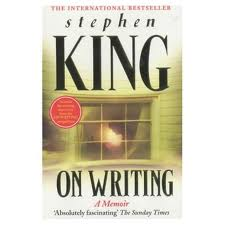I was working on a bit in my zombie novel Dead Bastards where certain characters need to be in a specific place at a particular time.
I've spent weeks fretting over this, picking the brains of friends and family; it's given me sleepless nights and I’m at the stage where I feel like my brain is about to explode.
Dewey - "Malcolm, in school we learned the coolest thing: there were these people that did this broadcast to convince everyone that aliens were landing. So what we do is wait for Reese to fall asleep, then we flash some lights outside his window then we go to the TV, but we'll have already made a tape..."
I've spent weeks fretting over this, picking the brains of friends and family; it's given me sleepless nights and I’m at the stage where I feel like my brain is about to explode.
Then last night I realised one thing: I was over-thinking it.
Readers don’t need you to tell them everything. When there are blanks they’ll fill them in and they’ll probably do it even better than you could have ever written it.
Readers don’t need you to tell them everything. When there are blanks they’ll fill them in and they’ll probably do it even better than you could have ever written it.
 |
| Don't over-think thinks like Malcolm In The Middle's Dewey |
This realisation got me thinking of one of my favourite ever moments in one of my favourite shows. In Malcolm in the Middle, the youngest brother Dewey comes up with an elaborate ploy to convince idiot brother Reece that the aliens have arrived.
Dewey - "Malcolm, in school we learned the coolest thing: there were these people that did this broadcast to convince everyone that aliens were landing. So what we do is wait for Reese to fall asleep, then we flash some lights outside his window then we go to the TV, but we'll have already made a tape..."
Malcolm – "Dewey, you're totally over-thinking this. Reese, aliens landed down the street!"
And right enough, Reece comes running into the room wearing a mask and wielding a baseball bat and shouting "it’s every man for himself."














